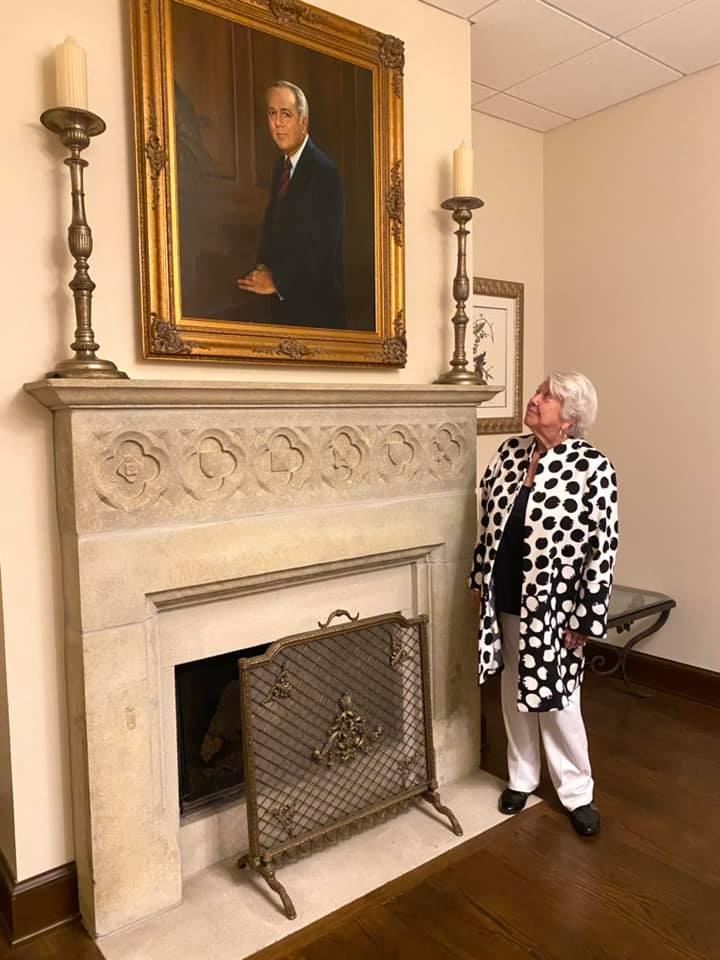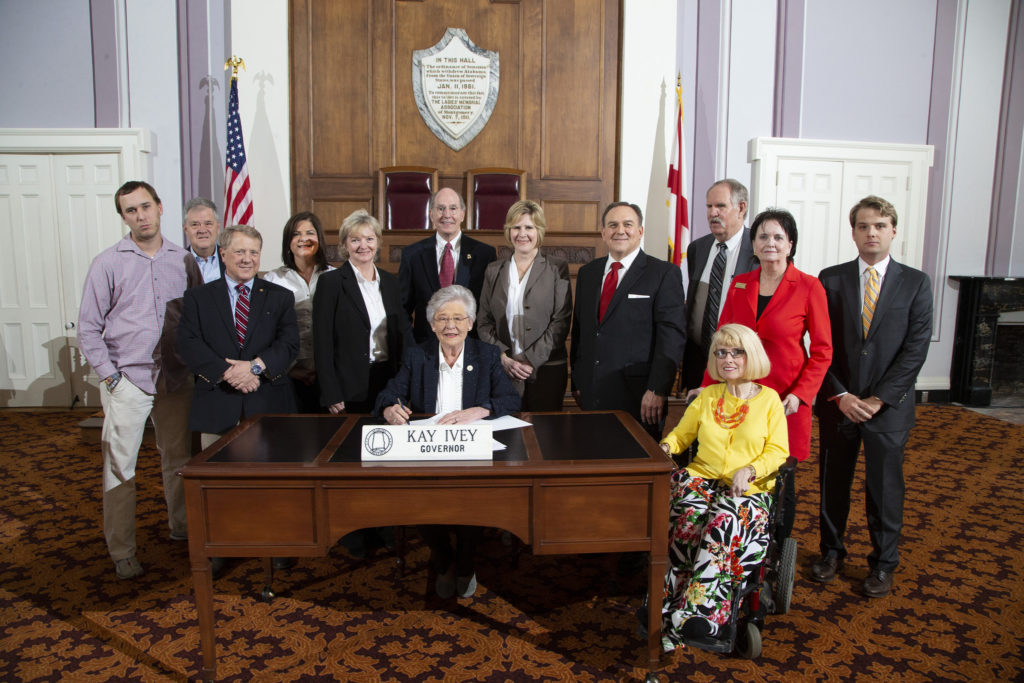Protected or Prisoners: How you can help honor the memory of JoAnn Bashinsky

I’ve been in and around politics for nearly 2 decades in one capacity or another. I’ve learned that the policy changes that really matter and are greatly needed are usually not the ones that get the attention they deserve. We as a nation have a habit of talking about legislation and policymaking in a vacuum. It is as if the only issues that matter are the ones that make headlines or are good for campaign slogans and speeches. Education, taxes, regulatory reform, protecting the 1st and 2nd amendment, or whatever the headline-grabbing topic of the day gets all the attention. Ethics reform here in Alabama is one that (with good reason) has been discussed a lot in recent years. Candidates run on the topics that make for good water cooler or dinner table conversation. The laws related to court-ordered conservatorships and guardianships have probably never made that list for any candidate anywhere. Yet the cone of silence surrounding it doesn’t make it any less important for those who need the system to protect them, their health, and their finances, or those abused by it. Moreover, the lack of attention lets fraud and abuse run rampant throughout the system, and federal and legal experts studying the situation predict it will only worsen as more of our population ages. Let’s face it; we’re all guilty of perpetuating the problem of ignoring the people and issues that should be a no brainer to fix and protect. Now is as good of a time as any to change that. This is the 8th part of a series meant to bring attention to this policy issue, but I want to circle back to the beginning before I get into it. For those who have not heard, it is with great sadness that I share that last week, Joann Bashinsky (known by many as Mama B or Mrs. B) passed away and was laid to rest. Mrs. B was the woman whose courage and kindness in fighting her court-ordered conservatorship was detailed in several of the first written editorials of this series and discussed on many of my frequent radio appearances while hosting shows throughout the state. I often described her as “fiery,” and that’s what she was. When she found herself in a court-ordered conservatorship, she had many tools that not everyone else in the same situation are afforded. First, she had the will and courage to fight it. Most have either but not both. In the audio recordings she made that were a part of my first story in this series, she questioned the assumptions being made about her and her health, and she stood her ground. She had the wherewithal to know she couldn’t go at it alone against a system that mainly operates in the dark. She told her story to anyone who would listen, and she gave several media interviews to get her story heard. In the other cases I’ve investigated or am currently investigating, family members or lawyers who speak to me do so confidentially, off the record, or in the background out of fear that direct media coverage naming the parties involved will upset either or both the court-ordered conservator or the judge assigned to the case. Their fears are not necessarily unreasonable. Based on my research and the work of advocacy groups who shine a light on this subject, the issue of retribution is commonplace. A frequently cited act of retribution for those who speak out or fight back against the system is increased prescription dosages or new drugs added to a ward’s medication routine. Sometimes these medicines are meant to leave the individual confused, weak, or sleepy. This is exactly the type of situation that aides the case against them and contributes to the proof that an individual cannot care for themselves. The second thing that can and too frequently happens to those objecting to their cases is isolation. Wards are kept from their loved ones especially if those loved ones are objecting to the courts actions. These are a powerful method of silencing wards and their families. Unlike Mrs. B, and in the only other public case I’ve ever heard of in the mainstream media, Britney Spears, the majority of those under court-ordered conservatorships find themselves facing an uphill battle to win back their rights with no media coverage whatsoever. I’ve spoken to lawmakers on every level from city, county, state, and federal, who had no idea how the system in its current form exists or how it works. This is a fact that is chilling given the tremendous amount of power those involved, from judges to conservators, guardian ad litems, and others within it, have. Though there have recently been several documentaries, including an episode of Dirty Money on Netflix, the overwhelming majority of seniors and their families don’t get to detail the often shocking stories of families torn apart, exorbitant legal fees, and other conditions most would find distressing. One of the biggest challenges to the publication of these stories is that few people are willing, and even fewer are able, to succinctly share their stories. Most cases involve long and arduous tales of family dysfunction, sibling in-fighting, a lot of he-said-she-said, and contradicting stories that go in circles and are time-consuming to unravel. These hard-to-follow stories and oftentimes too wild to be true stories are facts that predators within the system take advantage of. Courts and court-ordered appointees claim they’re “protecting” the wards even when said ward has family that can and should be their protectors. As I stated above, Mrs. B’s case was different in that she was willing and able to tell her story to anyone who would listen. I watched from afar after my series began, and I moved on to other cases as story after story came out on Mrs. B, knowing she was making a difference with each one. She was adamant that what happened to her was wrong—an opinion upheld by the Alabama State Supreme Court. The
Bill signing ceremony celebrates new guardianship law to assist those with disabilities

In February, the State of Alabama launched Achieving a Better Life Experience (ABLE) accounts, a new financial savings tool for individuals with disabilities. The Enable Savings Plan is a financial program that allows individuals with disabilities to open tax-exempt savings accounts to save for disability-related expenses without impacting resource-based benefits. The program permits individuals with disabilities to save more than a total of $2,000 in assets (cash, savings, etc.) in their name in an Enable account without jeopardizing their public benefits like Medicaid and Supplemental Security Income (SSI). In March, Moulton-Republican State Rep. Ken Johnson and Montgomery-Republican State Sen. Dick Brewbaker, introduced legislation to assist those eligible for an account by granting their guardians full financial capabilities when opening and managing an ABLE account. The bill ultimately passed both chambers and moved to Gov. Kay Ivey‘s desk for a signature. On Thursday, the State celebrated the new guardianship assistance law with a ceremonial bill signing at the state capitol in Montgomery, Ala. “Alabama’s recent guardianship decision will serve to benefit many individuals and their families throughout the state, providing greater access to an important resource, the Enable Program. Giving guardians this power simplifies matters for individuals with disabilities by allowing guardians to open, invest in, and manage an Enable account,” said Alabama Treasurer Young Boozer, who attended the ceremonial bill signing.


